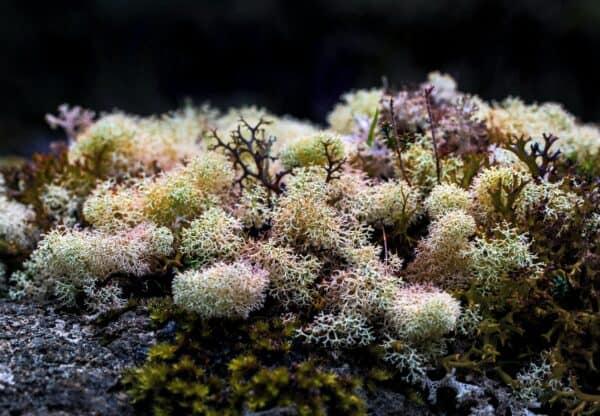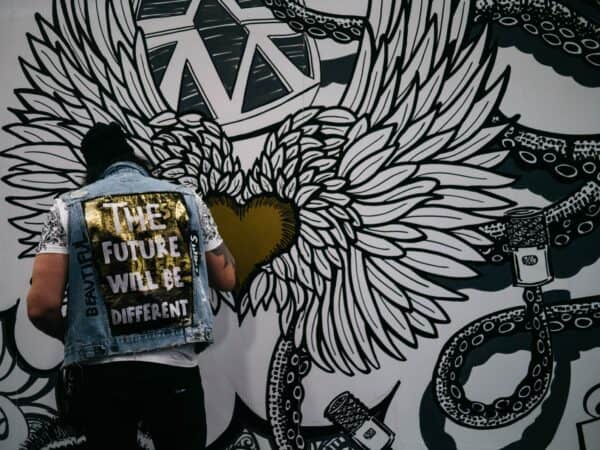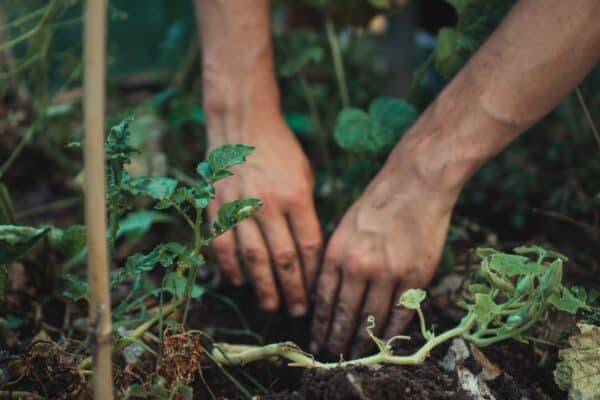This blog was first published June 14, 2020 on the platform Thrive Global.
We are in desperate need of a new operating system.
For humanity.
For our society.
If our operating system was a good one, we would take for granted that black lives matter.
If our operating system was a good one, we wouldn’t face the effects of climate change.
If our operating system was a good one, we wouldn’t have people sleeping on the streets of so-called developed nations, or women earning less than men.
If our operating system was a good one, we would feel like we were all equally powerful, equally able to release our potential and feel whole, inside-out.
We don’t.
We can’t successfully change the things that are not right, unless we understand how they came to be, in the first place.
Actions and behaviours are based on our mindset and beliefs. Ideas about ourselves, the world and our place within it.
The operating system for our current society was built on a deliberate ideology of ‘power over’.
It will never be possible for people to be fully equal within a system that rests on the idea of ‘power over’. That defies the law of non-contradiction. Both things can’t be true at the same time.
‘Power over’ means domination. It means hierarchy. It means competition, separation and segregation.
It means ‘I am different to you’. It means ‘I am better than you’. It means ‘you are less than..’ and ‘you are not enough’.
It means that some people get to belong and others not. It means that some people get to have privilege and others not. It means some people have to fight to have rights, and others not. It means that where some people have a lot, more people don’t have enough.
It also means ‘never enough’.
With the territory of dominance comes greed.
It means we can do what we please with Nature. It means we can consume insatiably. It means we just want more, more, more.
An integral part of our operating system is this thing that I have been writing about in the past week which makes us all wince, called white supremacy.
This is an intentionally invented ideology at the very heart of our system. An ideology is a system of ideas and ideals, which forms the basis of economic or political theory and policy.
As part of the construction of the structure for our society, a hierarchy of human beings, based on skin-colour and gender, was invented in order to dehumanise and legitimise the dominance over all other people that were non-white. It also, of course, legitimised the dominance over women too.
Both science and religion were used to justify these hierarchies.
Whiteness came to represent DESIRABLE. PRIVILEGE. STATUS. POWER. Blackness as undesirable and “the other”.
Now whiteness is a constantly shifting boundary, separating those who are entitled to have certain privileges from those whose exploitation and vulnerability to violence is justified by them not being white. For a long time, Irish people were not considered white, Italians were not considered white either. In Northern European countries, Eastern and Southern European people are often seen as ‘less white’ (less desirable) too.
Part of the intentional construction was the invention of race.
Race is a political construction; it has nothing to do with scientific truth.
A political construction is something created by people, that is not a natural development, that is constructed or created for a political purpose.
The creation of a coherent ideology of superiority of white people gave the green light to the strategy to enslave, colonise, murder, rape, torture, and oppress people who were not white in order to make money and feel powerful.
It is what justified the complete genocide of indigenous tribes.
It led to social legislation to keep racial and ethnic groups separate.
It led to forced sterilisation of people who were seen as genetically undesirable too.
In modern times it led to sophisticated systems of segregation around where people live, property regulations, and how people were allowed to move around.
It led to laws and policies about people’s civil rights, access to education, jobs, financial security and health care.
Conquering and dividing is in perfect alignment with the core principle of separation.
It’s a deliberate system of anti-blackness.
It’s also deeply narcissistic. The world revolves around a certain group of people – white people – at the top of the hierarchy.
Because it is deeply unnatural, being socialised into and living our lives within this system is traumatic on some deep human level to everyone within the system.
It’s not how we are born. We are not born this way.
Separation isn’t our natural state. Wholeness is.
Connection to each other and the Earth is.
Oppression isn’t wholeness. Greed isn’t wholeness. Hurting other people, even when we don’t understand that we are, isn’t wholeness.
On some base psychological level we are part of a collective trauma.
But within the system are mechanisms to make us believe that it is a great system. We are told that our countries are great too.
To be proud of empire, proud of people who committed crimes against humanity.
The system tells us that the laws and policies say that we have equal rights.
It points to the papers that say that our lives matter equally.
The system tells us that the ideology of white superiority died years ago.
But that’s not true. We all know deep down it didn’t.
Because if that was true, why would discrimination be a current reality of people of colour in every area of life?
If that was true, why was George Floyd and countless other black people murdered by police?
If the system was long gone, why is ‘black lives matter’ even an issue?
The system is still alive.
And that’s because it was never intentionally deconstructed.
It was never INTENTIONALLY deconstructed.
You see, the narcissist system never does anything bad, never apologises for anything. Because deep down, the narcissist grapples with internalised shame.
Shame is not guilt. Shame is ‘I am bad’, not ‘I did something bad’.
The shame locks us into the system.
That means that we have to collectively perpetuate it and justify it and keep making it “right” or deny the existence of it, because otherwise we have to look at shame.
And shame is one of the most uncomfortable emotions a human being can feel. We will do almost anything to avoid feeling it. Including denying the very reason it exists in the first place.
The narcissist system doesn’t want to look at shame because it makes the people who are part of it feel humiliated.
So it means that we keep on with the construction of a world view where we are led to believe that the world is white. That is a form of narcissistic propaganda.
It is only when we know we are enough, that we are able to self-reflect on the system, without feeling attacked.
Because it is truly and deeply uncomfortable to realise what we are a part of.
Black lives not mattering as much as white lives is the deepest shadow of our collective. And it means we want to avoid looking at it.
It means that we may display a whole range of emotions from denial, to justification, to feeling humiliated, to freaking out, to anger, to hiding, when confronted with the realities of it.
It can make conversations about the system challenging, but not impossible.
The first step is to choose to become inner activists.
Saying YES to being an inner activist means that we take responsibility for the emotions we feel when confronted with white privilege. It means that instead of feeling defensive and shutting down or lashing out, we see it as an opportunity to heal on a deeper level, to awaken more.
To get closer to Love. To get closer to one another.
Because the truth is, that if we felt whole and enough, inside-out, we wouldn’t feel threatened. Saying that someone else’s life matters as much as ours do, would not feel like a threat.
Reckoning with the deepest collective shadow of our system – the shadow of separation, the shadow of black lives not mattering – is what will release the potential of all of humanity.
When the people who have systematically ranked at the bottom of the hierarchy for almost 500 years matter as much as white lives matter, then people who have been oppressed to a lesser extent, will have full equality too. Will feel whole too.
We will all feel more whole when black lives matter as much as white people’s do.
Because it is a sign we no longer feel like we need to compete for power.
We will live in a system of ‘power with’ rather than ‘power over’.
Equality is what will bring us peace.
If peace is what we want, then we must move towards acknowledging the system, the foundations for our collective story that is still haunting us – what it has done to the world – and what it is STILL doing to the world.
Only when we admit to this story can it be healed. We know this from how humans heal emotionally in therapy. We know it from how every reconciliation process works.
If we want to dismantle our system of separation – we have to acknowledge the system of separation.
We can’t heal separation if we deny it and rush to plaster love, light and unity over the big gaping wound.
We can’t embrace oneness without acknowledging the boulder that blocks it.
Only when we are willing to fully acknowledge and face the ugly truth of the foundations of our society, and intentionally seek to dismantle them, will we be able to be fully open to building a brand-new operating system for our world.
One that is built on the principle of the wholeness we all seek.
This article formed part of a 90-minute training for the Time to Shine community called “We are the seed-planters”.
If you are a changemaker who holds white privilege, you may want to check out the Wish Tree Wholeness Immersion based on Layla F. Saad’s powerful work “Me & White Supremacy”. The Wholeness Immersion Roots 4 Change is open and actively welcomes all changemakers.








